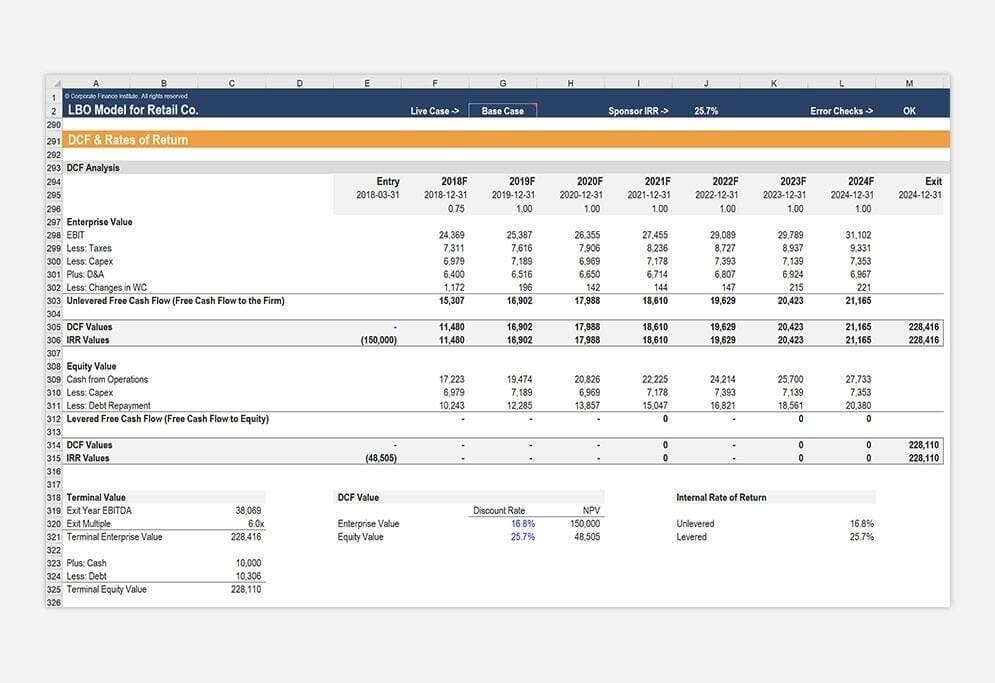- What is Real Estate Private Equity?
- Types of Real Estate
- Real Estate Private Equity Investment Strategies
- Real Estate Private Equity vs. REITs vs. Real Estate Operating Companies
- Real Estate Private Equity Career Path
- Key Skills for a Successful Career
- Real Estate Private Equity Interviews
- Top Real Estate Private Equity Firms
- Exit Opportunities
Real Estate Private Equity (REPE): Investment Strategies and Careers
Real estate private equity is a highly desired role but has some differences from traditional private equity
What is Real Estate Private Equity?

Real Estate Private Equity (REPE) firms raise capital from investors (known as limited partners) to acquire, develop, improve, and operate real estate before ultimately selling the property and distributing profits. Real estate is real, tangible property consisting of land and buildings.
Real estate investments are tangible, can produce relatively stable cash flows, and there is basically a fixed amount of it that will always exist and be in demand. This makes real estate a popular and attractive investment class that can help diversify investor portfolios since it tends to hold value and is less volatile compared to stocks. Correspondingly, real estate is a highly desirable career path for finance professionals.
Key Highlights
- Real Estate Private Equity (REPE) firms raise capital from investors to acquire, develop, improve, and operate real estate.
- REPE firms may target different types of real estate and employ different strategies to create value for investors.
- REPE differs from other ways to invest in real estate, like real estate investment trusts (REITs) or real estate operating companies (REOCs).
Types of Real Estate
Real estate falls into two broad categories: residential and non-residential (commercial) real estate.
Both categories can be further subdivided. Under residential real estate, there is single family or multifamily property. Commercial real estate can be subdivided into retail, office, industrial, special use, or raw land. Commercial properties have a clear commercial purpose, supported by appropriate zoning.
Real estate private equity focuses on commercial real estate, as well as multifamily properties. Single family real estate investments are not typically targeted by REPE, but there are exceptions.
Classes of Commercial Real Estate
Commercial real estate can also be further divided into different classes:
- Class A: Class A buildings are the youngest and very high quality. These buildings are typically located in very desirable areas in large cities.
- Class B: Class B buildings are older than Class A and may need some minor renovations. Additionally, they are typically located in good, not great, markets.
- Class C: Buildings in this class are older and usually in need of significant work. Furthermore, Class C buildings are located in less desirable areas.
- Class D: Class D buildings are the lowest quality. They are old and in need of significant renovation or redevelopment.
Real Estate Private Equity Investment Strategies
REPE firms don’t necessarily invest in one type of real estate and are usually quite diversified. However, many firms do limit their investment portfolio to a specific geography.
Additionally, while the very name real estate private equity implies the firm only invests equity in a development, this is not necessarily true. Some REPE firms will invest in various debt instruments ranging from senior debt to mezzanine financing.
However, firms do target a specific strategy. There are four such strategies, in order from least risky to most risky (correspondingly, from lowest return potential to greatest return potential):
- Core: A core strategy consists of very high-quality and high-value (Class A) real estate properties with minimal needs for improvement. Given the low-risk profile of these properties, returns from this strategy are also lower.
- Core-Plus: This strategy is similar to Core, but there’s a little more upside (and more risk). The difference is that the Core-Plus strategy requires some moderate improvements to the properties (typically Class B) to increase cash flow.
- Value-Add: Further up on the risk/return spectrum, the value-add strategy requires more redevelopment, and cash flows will be quite a bit less certain. This strategy focuses on Class B and Class C properties and is more concerned with profiting at exit compared to near-term income generation.
- Opportunistic: This strategy is similar to Value-Add but will target Class C, undeveloped land, or severely distressed properties in need of major redevelopment. This is the riskiest strategy but offers the highest potential returns.
Real Estate Private Equity vs. REITs vs. Real Estate Operating Companies
Real estate private equity is one of several different ways to invest in real estate. Other ways to invest include Real Estate Investment Trusts (REITs) or Real Estate Operating Companies (REOCs).
REITs
A REIT is usually a publicly traded investment fund that invests in income-generating real estate properties. In the United States, a REIT receives special tax considerations if it follows certain requirements:
- REITs should have at least 100 shareholders, and none of them can hold more than 50% of the shares
- Must have at least 75% of its assets invested in real estate, cash, or treasuries
- 75% of its gross income must be obtained from real estate investments
- Must pay dividends equaling at least 90% of its taxable income to shareholders
- Must be managed by a Board of Directors or Trustees
REOCs
A REOC is a publicly traded company that owns and operates real estate properties. Unlike REITs, REOCs are allowed to reinvest a majority of earnings into new and existing projects. REOCs operate as for-profit companies that are subject to standard corporate taxes like other corporations.
Differences from REPEs
Real estate private equity firms differ from REITs and REOCs in several ways:
- REPE firms are not publicly traded: REPE firms are private investments that the general public cannot typically invest in. As an asset class, private equity is generally only open to high net worth investors. As part of investing in private equity, the investment is locked up for a long period of time, unlike a typical publicly traded investment, which is highly liquid.
- Less regulated: Since REPE is a private investment it is not as regulated when compared to public investment vehicles.
- REPE funds will eventually exit their investments: REPE firms acquire and develop properties but will eventually exit the investment, hopefully realizing substantial gains. In contrast, REITs and REOCs often hold on to their properties indefinitely.
Real Estate Private Equity Career Path
Real estate private equity careers are quite similar to traditional private equity careers. However, REPE professionals will likely have more varied backgrounds than traditional private equity, which mostly recruits directly from investment banking.
Other than investment banking, REPE will hire candidates from real estate brokerage firms, lenders, or hire asset management professionals that are already working at the PE firm.
Roles in Private Equity Real Estate
While there are many different roles at a private equity real estate firm, including capital raising, and accounting, the two most sought-after roles are 1) acquisitions and 2) asset management.
The acquisitions role is the most clearly “private equity” role. Acquisitions professionals are focused on sourcing and executing a deal. As part of that, there will be market research, financial modeling, performing due diligence, and writing investment memos.
In contrast, the asset management team is responsible for implementing the business plan after a property has been acquired, as well as helping manage and develop the property. This involves signing new leases to maintain or increase occupancy, managing construction, and selling the property. Larger firms may segregate the acquisitions role from the asset management role, whereas smaller firms may have substantial overlap between them.
Key Skills for a Successful Career
There are a number of key skills the most successful players in the private equity business have in common. The first of these is solid business analysis skills. REPE employees have to be highly skilled, both technically and intuitively, in order to evaluate properties as potential investments.
Specific technical skill requirements include:
- Financial modeling
- Valuation
- General financial and market analysis
People skills, such as management skills, communication skills, negotiating skills, and networking skills, are also critically important.
Real Estate Private Equity Interviews
As with any private equity job, nailing the interview is crucial. As part of the recruiting process, there will most likely be several rounds of interviews. Both technical finance and real-estate-specific questions will be covered.
However, the depth of questions will vary depending on the candidate’s background. For example, candidates with investment banking backgrounds can expect lots of technical questions on modeling and valuation. Candidates with previous real estate backgrounds can expect more real-estate-specific questions.
Having said that, knowing real estate concepts really well can only help. Candidates should know how to calculate net operating income (NOI) and cap rate, and how to value properties (including comps, on a per-square-foot or other basis to normalize for size differences). Candidates should also know that replacement cost is also an often-used metric. A discounted cash flow (DCF) valuation is best used when a property is not yet stabilized. Being able to build a real estate model is also a plus, as there may be questions about property development modeling.
As part of the interview process there may be a case study assigned. The case study will cover market dynamics, a property overview, and financial data. The candidate will need to analyze and review all of the contents and come up with an investment thesis.
Top Real Estate Private Equity Firms
Some of the most well-known, traditional private equity firms are also large players in real estate. In fact, Blackstone, while also one of the largest players in other industries, is also the largest real estate private equity firm. Other top firms include Brookfield Asset Management and Starwood Capital Group.
PEREnews annually publishes private equity real estate rankings.
Exit Opportunities
Assuming a REPE professional is not in the role for the rest of their careers, many choose to leave the private equity firm and start their own PE firm.
Alternatively, many professionals simply move on, investing in real estate assets and building up their own portfolio of assets over time. This is a more typical route than starting an REPE firm from scratch since it takes relatively less capital.
Others may move to a more generalist PE role, but that move usually happens earlier in an REPE professional’s career. The reason is that spending many years in real estate might “pigeonhole” a candidate into being a real estate expert and less knowledgeable about other industries.
Of course, other real estate paths are open as well. For example, real estate brokerage or lending.
Additional Resources
Thank you for reading this CFI guide to Real Estate Private Equity. To continue learning and progressing in your career, these additional CFI resources will be helpful:
Create a free account to unlock this Template
Access and download collection of free Templates to help power your productivity and performance.
Already have an account? Log in
Supercharge your skills with Premium Templates
Take your learning and productivity to the next level with our Premium Templates.
Upgrading to a paid membership gives you access to our extensive collection of plug-and-play Templates designed to power your performance—as well as CFI's full course catalog and accredited Certification Programs.
Already have a Self-Study or Full-Immersion membership? Log in
Access Exclusive Templates
Gain unlimited access to more than 250 productivity Templates, CFI's full course catalog and accredited Certification Programs, hundreds of resources, expert reviews and support, the chance to work with real-world finance and research tools, and more.
Already have a Full-Immersion membership? Log in





